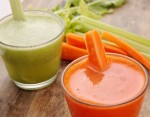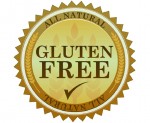Bananas are one of the most commonly consumed fruits in the world. While recent negative attention has pegged bananas as being high in sugar or less healthy than other fruits, bananas are still superstar additions to our diets. Bananas are portable, economical, delicious, and nutritious (so long as youre not using them in banana bread or a banana split, that is!). Still not convinced that bananas deserve to stay in your grocery cart? Read on!
Bananas contain potassium!
Youve probably heard the word potassium before, but could you describe its function in our bodies? Potassium is an electrolyte. Electrolytes help our body regulate blood pH, hydration status, and muscle contraction. Electrolytes are lost through sweat Gatorade and sports drinks are popular means to replenish electrolytes. However, sports drinks are very high in added sugar and calories. Bananas are natures natural potassium source, with only 105 calories per medium banana. A standard sports beverage generally contains 200+ calories per bottle! Bananas are an excellent source of fuel and potassium after a long run, bike ride, or other strenuous workout!
Bananas have Vitamin B6!
A single banana contains 25% of your daily Vitamin B6. B6 belongs to a class of 8 vitamins known as B Vitamins. While a B vitamin deficiency is fairly rare in the developed world, B6 is the most likely culprit for a deficiency. As such, eating bananas in conjunction with other vegetables containing B6 (spinach is a great source) is a great way to make sure youre consuming your daily quota!
Bananas provide fiber!
Our modern diets are largely lacking in fiber. Fiber is important for digestive health and bowel regularity, but also helps carry cholesterol out of our bloodstream. High-fiber diets have been linked with lower disease risk and better health outcomes. Bananas pack about 3.1 g fiber per medium banana. Women need 25 g fiber per day, while men need 48. 3.1 grams may sound like a small portion of that daily quota, but when you consider the low fiber items you may otherwise consume in place of a banana, such as an unhealthy snack (say, a candy bar or slice of white toast,both less than .8 g fiber), bananas emerge victorious.
Bananas are natures original portable snack!
Consider todays widely consumed portable snacks: chips, crackers, granola bars, smoothies, and sugary candy bars. Furthermore, bananas peels make them more resistant to pesticides that may be used in farming meaning that you dont have to worry about purchasing organic bananas! Lets take a look at some of the most widely consumed snack options, all of which can (and should!) be replaced with this naturally portable option, courtesy of mother earth.
- Chips and crackers are often packed with trans-fats. Trans-fats are made from liquid vegetable oils that have been hydrogenated. The hydrogenation process is meant to make liquid fats shelf-stable to keep products from going rancid. However, this process also creates a trans-fatty acid, one of the most detrimental substances we can consume. Trans fats dont just raise bad LDL cholesterol they also lower good HDL cholesterol, increasing your chance of heart disease, stroke, and neurodegenerative conditions such as Alzheimers disease. Bananas, on the other hand, contain no trans-fats, and are just as portable and delicious as processed chips and crackers, not to mention 100 times healthier.
- Granola bars sound healthy. Oats, nuts, raisins? What could be unhealthy about whole grains, dried fruit, and healthy fats from nuts? Well, unfortunately, quite a bit is unhealthy about most granola bars. To help ingredients bind, fats or sugar (or both) are added to the otherwise virtuous mix. While many healthy living blogs tout the use of natural sweeteners (honey, maple syrup, etc) rather than typical white sugar or high fructose corn syrup, these items are still essentially added sugar. They pack a hefty dose of sugar in a world already ripe with too much sugar. While bananas do contain sugar (all fruit does), the amount is much less so than packaged granola bars and other healthy sweet snacks with added sugar.
- Like granola bars, smoothies start out good: fruit, yogurt, sometimes some healthy nuts or flaxseed. Unfortunately, to create a decent serving size, quite a lot of these ingredients are added, making for a calorie bomb. Even a medium smoothie can pack 300+ calories. If even 50 of those calories were beyond your caloric needs for the day, you could gain upwards of 3 extra lbs per year (consuming 4 smoothies per week). On the other hand, a medium banana contains only 105 calories, and is often more satiating than a smoothie, because your body has to break down solid food, whereas blended items are digested more rapidly, leaving you hungry and looking for another snack.














